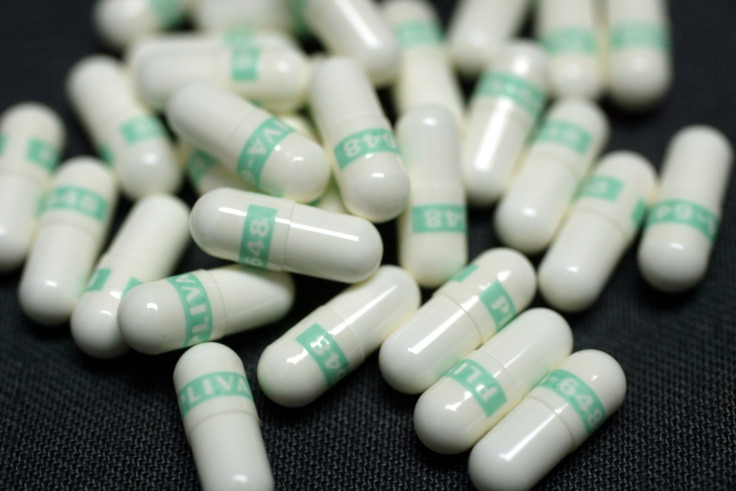World Health Day 2017 theme: Biggest myths about depression - and why they're wrong
Depression is one of the most common and debilitating diseases in the world.
Depression is now the leading cause of ill health and disability worldwide, with more than 300 million people affected. Yet it is also one of the most stigmatised condition, and misconceptions are very common.
World Health Day, which is held annually on 7 April will this year focus on raising awareness of the disease, with the tagline "Depression: let's talk". The hope is that more people who suffer from clinical depression will go and get help.
Addressing myths and prejudices is an important step in that direction, as it may help patients gather the courage to recognise that they are sick and to seek treatment.
Myth 1: Depression isn't a real disease
Clinical depression is one of the most debilitating disease in the world.
It's not the same thing as 'feeling blue'. We can all experience sadness or grief at some point in our life – that's a normal reaction to difficult times.
However, depression is an illness with real symptoms. It can be a real handicap for patients in the sense that it interferes with daily life and normal functioning. It is defined by people experiencing symptoms of depression most of the day, nearly every day, for at least two weeks.
Myth 2: Depressed people are just lazy or prone to self-pity
Depression is a disease and people can't help developing it. It is in no way a sign of a person's weakness or a character flaw. People with depression can't "snap out of" of depression. Most of them will need treatment and therapy to get better.
Myth 3: Only women get depression – men don't
Men can also be diagnosed with depression although they may experience it differently than women. They may be more reluctant to talk about how they are feeling or to seek help.
For men, the most common symptoms of clinical depression include: feeling tired and irritable, losing interest in their work, family, or hobbies. They are often more likely to have difficulty sleeping than women who have depression.
Myth 4: Children and teens don't get depressed
Although depression often begins in adulthood, it affects every age groups. Depression is now recognised as occurring in children and adolescents, although it sometimes characterised more by prominent irritability than low mood.
For teens affected by depression, it is not about going through ups and downs as part of puberty – the disease is real and debilitating.

Myth 5: A trauma must happen for depression to develop
Although a particular trauma can act as a trigger of depression, that's not always the case. Some people develop depression for no obvious reason.
Depression is quite common, affecting about one in 10 people at some point during their life and it is thought to have a genetic component – people with a family history of depression are more likely to experience it themselves. But it's also possible for people with no depressed relatives to also develop the disease.
Brain chemistry and hormones can also play a role – the brains of people with depression look different on scans than those of people without the illness and hormones can affect their chemistry.
Overall, the causes of depression appear to be a complex mix of genetic and environmental factors.
Myth 6: No treatment is needed, it's just a case of waiting for depression to go away
The kind of treatment that people receive depends on the intensity of their symptoms. People diagnosed with "mild depression" may wait a bit to see whether it improves on its own. They may also adopt lifestyle changes such as exercise and self-help groups.
But for many people, antidepressants are necessary and can be life-saving. In fact, doctors recommend that for moderate to severe depression people receive a combination of talking therapy and antidepressants.
Myth 7: Once you start antidepressants you are in for life
While antidepressants can greatly help patients, there is sometimes a concern that people won't be able to stop taking them without the disease reemerging.
Doctors usually reserve long-term antidepressant usage only for a small percentage of people who have two or more relapses of major depression.
Unlike sleeping pills or painkillers, antidepressants are not addictive. It's important to note however, that patients should never just stop a course of antidepressants on your own without the supervision and advice of the clinician.
Myth 8: Depression is the same for everyone affected
Not everyone who is depressed experiences every symptoms of the disease and their severity and frequency can vary greatly from one patient to the next.
An episode of depression can occur only once in a person's lifetime, but more often, a person has several episodes. Some people are also diagnosed with persistent depressive disorder – a depression that lasts for at least two years.
Some forms of depression are slightly different and include conditions such psychotic depression, postpartum depression, seasonal affective disorder or bipolar disorder.

Myth 9: People with depression are dangerous and unpredictable
Mental health issues and depression often make the headlines in terrible circumstances, such as when the disease is linked to the authors of mass shootings.
But it is important to highlight that people with depression are more likely to be a victim of violence than to commit violence themselves.
Myth 10: Most suicidal people are depressed
Although the body of research dedicated to the subject is growing, there is still little hard evidence to explain why some people attempt suicide.
Although people with severe depression are much more likely to attempt suicide than the general population, not all people who kill themselves or attempt to do so are depressed. A large number of risk factors – from life history to addiction – can also increase a person's vulnerability to suicide.
© Copyright IBTimes 2025. All rights reserved.






















